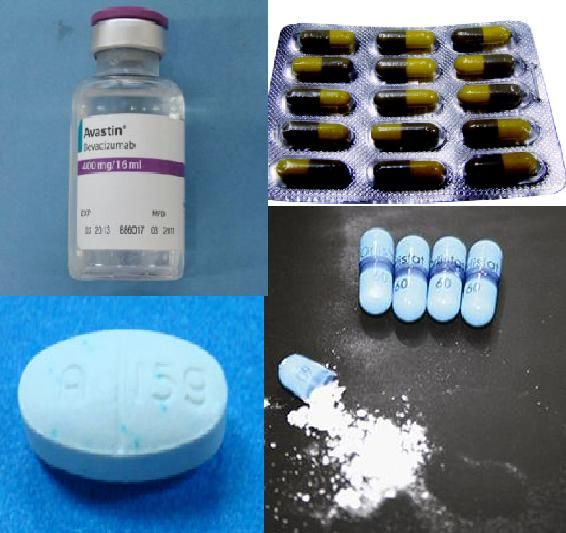Selling Fake Drugs Is a Booming Business And Increasingly Easier

After health officials publically revealed this week that they have alerted 19 oncology practices purchasing “unapproved cancer medicines,” that could have also purchased the bogus cancer drug Avastin that did not contain the widely-used drug’s active ingredient, the news sparked new fears over more counterfeit treatments that could also be on the U.S. market.
The counterfeit cancer drug discovery follows other recent cases if fake drugs being sold on the U.S. market including fraudulent Viagra, the cholesterol medicine Lipitor, the anti-flu drug Tamiflu, the cholesterol medicine Lipitor and the weight-loss drugs Alli and Phentermine.
U.S. Food and Drug Administration officials know that more fake medicines are trying to make their way onto the U.S. supply chain.
Last month the FDA said that it was “aware of promotions and sales of unapproved injectable cancer medications direct-to-clinics in the U.S, which most likely were administered to patients,” like Roche’s Rituxan and Herceptin, AstraZeneca Plc’s Faslodex and Amgen Inc.’s Neupogen, in a statement.
FDA officials had said that both drug shortages and a desire to save costs were primary reasons for the spike in the purchase of unauthorized medication.
"Current shortages of injectable cancer medications may present an opportunity for unscrupulous individuals to introduce non-FDA approved products into the drug supply, which could result in serious harm to patients," according to the Jan.13 statement.
In 2010 FDA Commissioner Dr. Margaret Ann Hamburg said in a speech that it was shocking that in some parts of the world between 30 to 50 percent of the drugs used to treat serious diseases are counterfeit.
The commissioner had also said that in the past decade the pharmaceutical industry has largely shifted its manufacturing operations and supplying sourcing abroad and that 40 percent of the drugs Americans take are imported and nearly 80 percent of the active ingredients in the drugs on the American market come from overseas.
Hamburg said that the industry shift resulted in the supply chain, from raw material to finished product, evolving to become “more complex and mysterious involving a web of repackagers and distributors in a variety of locations” creating new entry points in which more “contaminated, adulterated and counterfeit products can infiltrate the drug supply.”
Not only is it increasingly easier to sell fake or contaminated medications on the U.S. market, Hamburg said that “counterfeits, diversions and cargo theft are all part of a growing criminal enterprise” for people looking to maximize profits by preying on healthcare providers who want to save money.
Counterfeit medicine experts have also noticed that healthcare practices purchasing medicines from overseas or unapproved suppliers is becoming an increasing problem, a trend motivated partly by the high cost of certain medicines that drive patients physicians to pursue cheaper alternatives.
"What we've seen is that there are active efforts underway by persons to specifically target clinics and doctors," Tom Kubic, president of the Pharmaceutical Security Institute, a non-profit, industry-supported organization that collects information on counterfeit medicines told Reuters.
"We're well beyond the traditional counterfeit medicines we've seen in certain therapeutic categories," Kubic said, referring to bogus versions of erectile dysfunction drugs such as Pfizer Inc's Viagra.
Roche Holding AG's Genentech division had said that the counterfeit product is “not safe or effective and should not be used,” and the FDA had asked the 19 U.S. medical practices purchasing drugs from non-FDA-approved suppliers to “cease using and retain and secure all remaining products” that were bought from Quality Specialty Products, a foreign supplier that also uses the name Montana Health Care Solutions or any other unapproved sources for the investigation.
According to reports from Reuters the distributor of phony vials of the popular cancer drug Avastin had already aroused suspicion in health clinics as early as July, months before the FDA had issued their own warning, and the health agency had said that it as well as the drug maker had been alerted by UK authorities in December about the counterfeit version of Avastin.
Montana Healthcare Solutions had priced Avastin 400 mg vials under $1900 compared to $2400 that Genentech charges in the United States, according to a list of biotech medicines offered by Montana Healthcare Solutions that was obtained by Reuters.
The list also reportedly offered "lower-priced European alternatives" from Amgen Inc , Eli Lilly and Co , Celgene Corp and Novartis AG .
An official from one notified oncology practice in California had told Reuters that it “ceased all business” with Montana Healthcare in July when the discounted drug distributor had not provided immediate answers to the source who questioned why their products were missing a national health code, required for billing and reimbursement purposes.
The practice had not contacted the FDA at the time, but the source told Reuters that agency officials who said they were investigating the supplier and the medicines coming from abroad had visited their office a month ago.
The FDA and Roche Holding AG's Genentech division had said on Wednesday that they were still investigating how widely the counterfeit version of the popular cancer drug was distributed, and they still are unsure as to how many patients might have been treated with the fake product, or if anyone was harmed.
Published by Medicaldaily.com



























